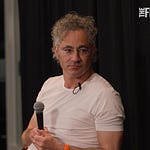Steven Pinker is a world-renowned cognitive psychologist, and is widely regarded as one of the most important public intellectuals of our time. His work delves into the complexities of cognition, language, and social behavior, and his research offers a window into the fundamental workings of the human mind.
Pinker, who is the author of nine books including Enlightenment Now: The Case for Reason, Science, Humanism and Progress and Rationality: What It Is, Why It Seems Scarce, Why It Matters, approaches his work with a kind of data-driven optimism about the world that has set him apart from the chorus of doomer voices we hear so much from in our public discourse.
Today, we talk to Pinker about why smart people believe stupid things, the psychology of conspiracy theories, free speech and academic freedom, why democracy and enlightenment values are contrary to human nature, the moral panic around AI, and much more.
The Free Press earns a commission from any purchases made through Bookshop.org links.
Learn more about your ad choices. Visit megaphone.fm/adchoices
















Late to the party, but I only just listened to this yesterday. Like many other commenters, I wanted to butt in and ask them some questions. For me, it was during Dr. Pinker's dismissal of concerns about AI's potential misuse. He seems to believe that because engineers are smart people and know the dangers, they won't be stupid enough to design something that could endanger themselves along with the rest of the world, without also designing sufficient safeguards. Has he never heard of smart people who crave power, and are willing to pay other smart people to help them get it? People who allow their lust for power to be a blind spot, ignoring or minimizing risks while reaching for their goals? I'm not one who thinks AI will be the end of the world, but I know programmers -- they are human, and vulnerable to the passions like the rest of us.
This became so silly I had to turn it off halfway through. They jumped from example to example, spouted accepted beliefs, and never dug beneath the surface of anything. All I learned was their biases and blind spots.